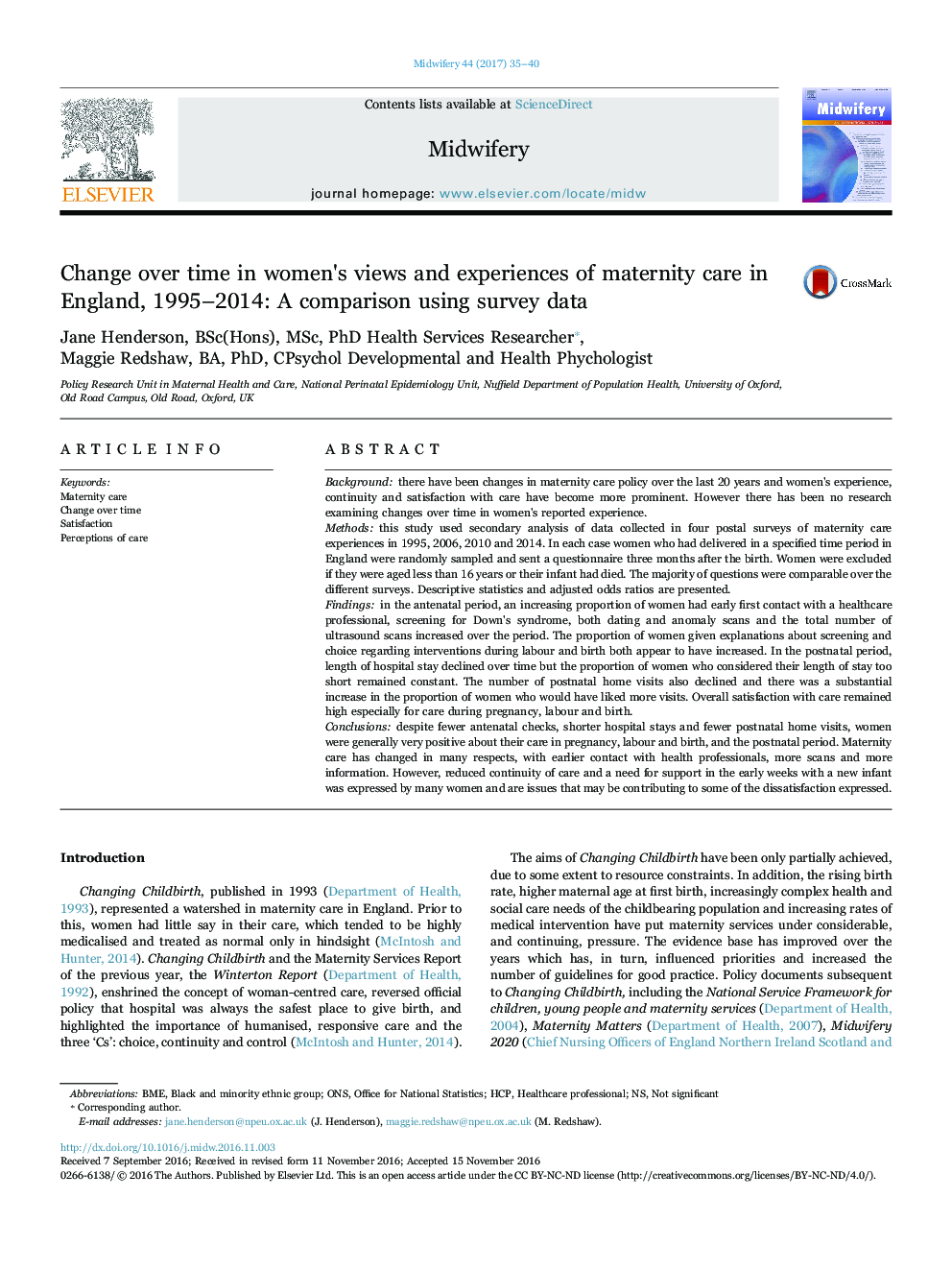| Article ID | Journal | Published Year | Pages | File Type |
|---|---|---|---|---|
| 5122260 | Midwifery | 2017 | 6 Pages |
â¢Increasing proportions of women had antenatal screening and ultrasound scans.â¢Total number of antenatal checks declined.â¢Except for caesarean section, intrapartum interventions declined.â¢Duration of postnatal hospital stay and number of postnatal visits declined.â¢Overall satisfaction remained high.
Backgroundthere have been changes in maternity care policy over the last 20 years and women's experience, continuity and satisfaction with care have become more prominent. However there has been no research examining changes over time in women's reported experience.Methodsthis study used secondary analysis of data collected in four postal surveys of maternity care experiences in 1995, 2006, 2010 and 2014. In each case women who had delivered in a specified time period in England were randomly sampled and sent a questionnaire three months after the birth. Women were excluded if they were aged less than 16 years or their infant had died. The majority of questions were comparable over the different surveys. Descriptive statistics and adjusted odds ratios are presented.Findingsin the antenatal period, an increasing proportion of women had early first contact with a healthcare professional, screening for Down's syndrome, both dating and anomaly scans and the total number of ultrasound scans increased over the period. The proportion of women given explanations about screening and choice regarding interventions during labour and birth both appear to have increased. In the postnatal period, length of hospital stay declined over time but the proportion of women who considered their length of stay too short remained constant. The number of postnatal home visits also declined and there was a substantial increase in the proportion of women who would have liked more visits. Overall satisfaction with care remained high especially for care during pregnancy, labour and birth.Conclusionsdespite fewer antenatal checks, shorter hospital stays and fewer postnatal home visits, women were generally very positive about their care in pregnancy, labour and birth, and the postnatal period. Maternity care has changed in many respects, with earlier contact with health professionals, more scans and more information. However, reduced continuity of care and a need for support in the early weeks with a new infant was expressed by many women and are issues that may be contributing to some of the dissatisfaction expressed.
